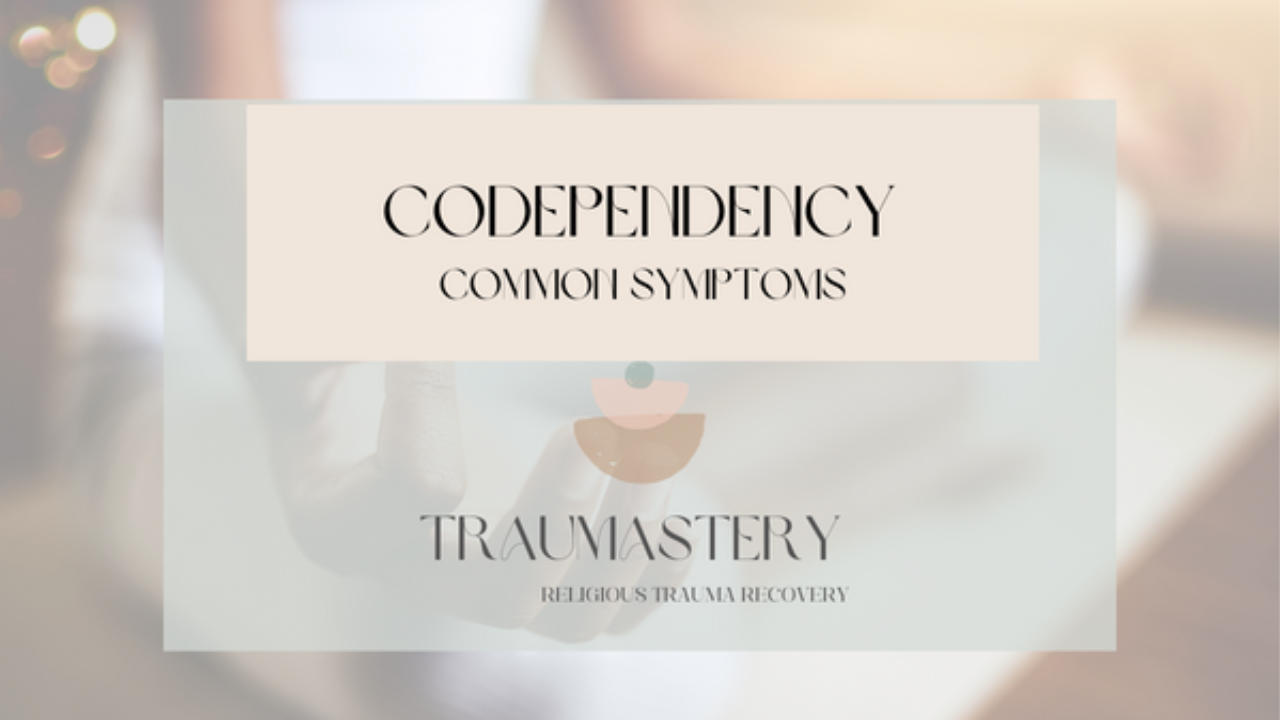Common Symptoms of Codependency

When we first hear the term “codependency”, many of us immediately say, “Nope, not me. I’m not codependent.” We find many reasons to justify our toxic relational patterns and our overwhelm and exhaustion. In fact, many of us believe this is simply how relationships are supposed to be.
For those that are on the fence about whether you might have codependent patterns, here’s a quick list of common symptoms we might experience.
-
Chronic people-pleasing.
-
If it’s absolutely cringe-worthy for you to make someone mad or advocate for your needs, then there’s likely some codependent patterns there. Codependent folks will work themselves to deal to make sure others are happy and stable before they can attend to their own needs.
-
-
Difficulty holding boundaries.
-
Yep, all those instagram therapists (guilty!) that talk about boundaries really intrigue you but it’s so hard for you to actually put it into practice. There’s typically a big internal reaction when you attempt to put a boundary in place. That internal reaction of guilt or fear is too intense to bear, so you abandon those boundaries and jump right back into the codependent pattern.
-
-
Overly preoccupied with others’ distress.
-
You are likely in some patterns where the stress of others has a very big impact on your own mental well-being. You can find yourself preoccupied with others’ stressors and you likely try to intervene as much as possible in order to make the whole potential crisis go away.
-
-
Internal pressure to stay connected to chaotic relationships.
-
We’ve got a whole post on “Where does codependency start?” so that’s a great place to begin your research. Codependents usually grew up in really tense environments where they were unconsciously in charge of keeping parents or caregivers calm, grounded, and safe. This means codependents are used to stress and tension, even if it's annoying to them. In a lot of cases, this early childhood environment teaches them to be the manager of other peoples’ chaos and it keeps them in really unpredictable relationships.
-
Do any of these symptoms sound like you?
If you are looking to take a deep dive in to your codependency and people-pleasing patterns, then we have a curated course, From Chaos to Connected, made just for you. Stop living in the push and pull, chaotic mess of relationships and start using practical skills for recovery today. Get access to our 8-module curated course here.


